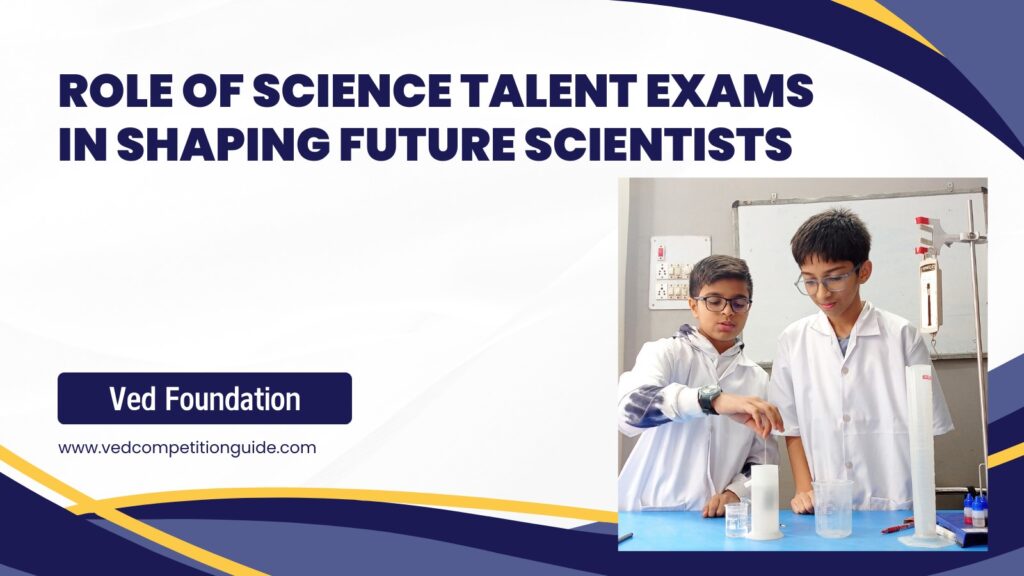Science talent exams, like the Homi Bhabha Junior Scientist Exam, are more than just tests of academic knowledge. They are platforms that identify and nurture young scientific minds, paving the way for a generation of innovators and problem-solvers. These exams play a crucial role in shaping future scientists

1. Identifying Talented Young Minds
Table of Contents
ToggleScience talent exams are designed to challenge students’ understanding of fundamental scientific concepts. By focusing on critical thinking, problem-solving, and practical applications, these exams help identify students who have a natural aptitude for science. Recognizing such talent early ensures that these students receive the right guidance to excel in the field.
2. Encouraging a Scientific Temperament
Participating in competitive exams fosters curiosity and a love for learning. Students are encouraged to ask questions, explore new ideas, and experiment, which are essential traits of successful scientists. These exams lay the foundation for developing a scientific temperament that goes beyond textbooks.
3. Building Confidence and Resilience
Preparing for and succeeding in such exams instills confidence in young learners. They realize their potential and learn to approach challenges with determination. The process of preparation also teaches resilience, a key trait needed in the scientific community, where trial and error are integral to success.
4. Exposure to Real-World Applications
Science talent exams often include practical-based questions and projects. These not only assess theoretical knowledge but also how students apply concepts in real-world scenarios. This exposure bridges the gap between academic learning and practical applications, making students better equipped for future scientific endeavors.
5. Creating Opportunities for Advanced Learning
Excelling in exams like the Homi Bhabha Junior Scientist Exam opens doors to advanced learning opportunities. Students may receive scholarships, mentorship programs, or access to exclusive science camps. These resources can significantly impact a student’s academic and professional journey in the sciences.
6. Fostering Healthy Competition
Competing with peers from diverse backgrounds helps students develop a sense of healthy competition. They learn to value teamwork, share ideas, and respect different perspectives—skills that are invaluable in collaborative scientific research.
7. Inspiring Career Aspirations
By participating in science talent exams, students often discover their passion for science and aspire to pursue careers in fields like medicine, engineering, research, and technology. These exams serve as the first stepping stone toward becoming future scientists, researchers, and innovators.
8. Promoting Lifelong Learning
The preparation process for these exams encourages students to explore beyond their curriculum. This habit of self-directed learning stays with them, fostering a lifelong passion for knowledge—a hallmark of successful scientists.
Conclusion
Science talent exams like the Homi Bhabha Junior Scientist Exam are not just academic milestones; they are transformative experiences that shape young minds into future scientists. They spark curiosity, instill confidence, and open up a world of possibilities for students, empowering them to contribute to scientific advancements that can change the world.
Encouraging children to participate in such exams is an investment in their future and, by extension, in the future of science itself. Let’s nurture their curiosity and passion, one exam at a time!
In Ved Foundation we prepare students for school level Competitive exams like Sir Homi Bhabha Jr Scientist, Sir C.V.Raman Science Talent Hunt ,Science Olympiad. We offer Distance Learning program for preparation of Competitive Exams.
